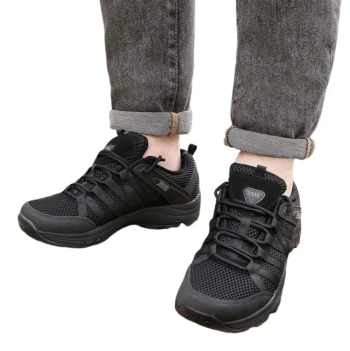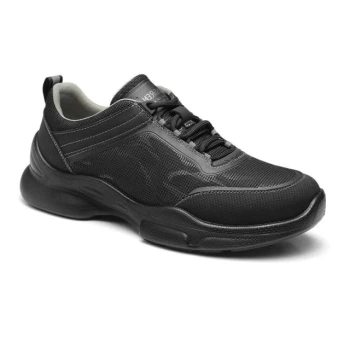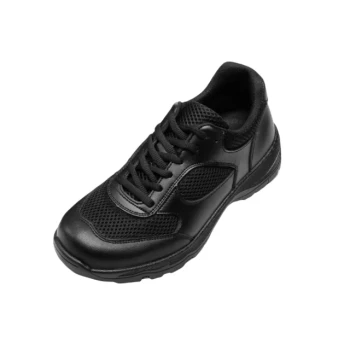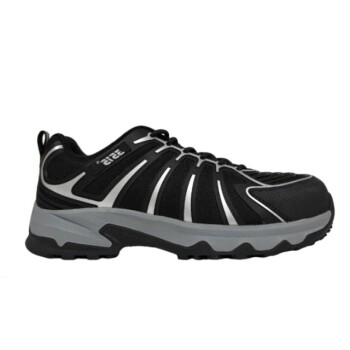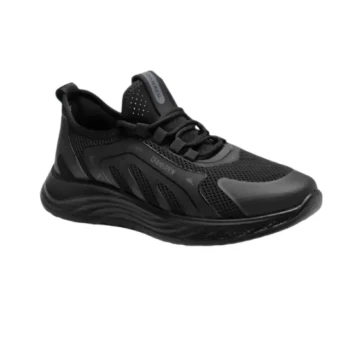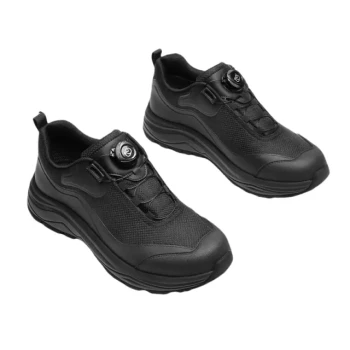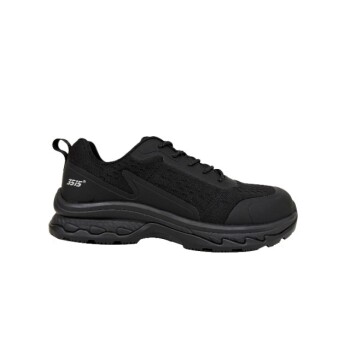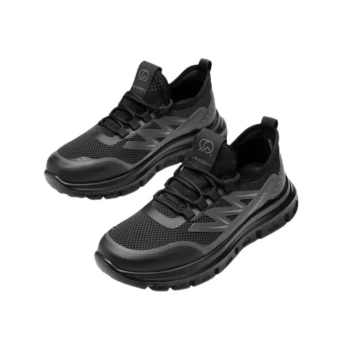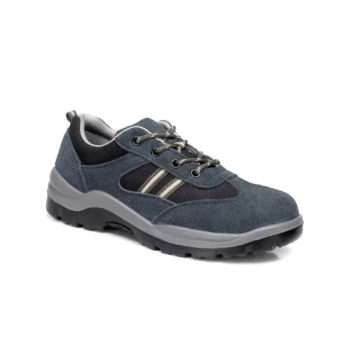Sustainable footwear is built from a diverse palette of innovative materials. The most common categories include organic fabrics like cotton and hemp, and recycled or upcycled materials such as plastics from PET bottles, agricultural waste, and even algae. These choices are central to creating products that minimize environmental impact.
The core principle of sustainable footwear extends far beyond the materials list. True sustainability is a holistic approach, evaluating the entire lifecycle from ethical sourcing and low-impact production to the product's durability and end-of-life.
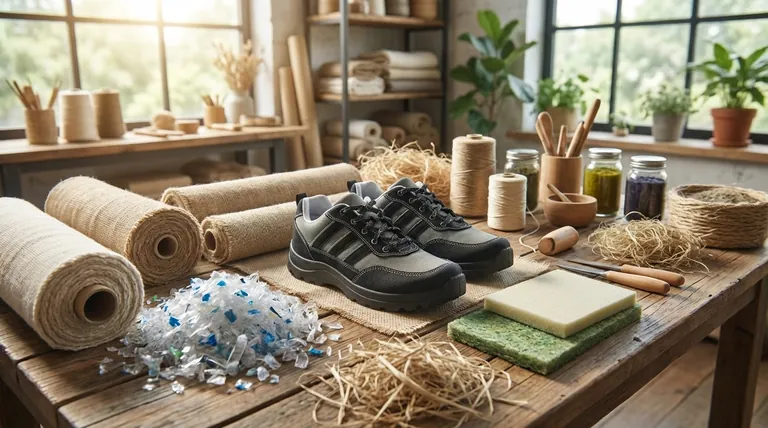
The Two Pillars of Sustainable Footwear
To truly understand sustainable shoes, you must look at two distinct but interconnected elements: the materials they are made from and the processes used to create them. A shoe is only as sustainable as its weakest link.
Pillar 1: Material Innovation
The choice of raw materials is the most visible aspect of a sustainable shoe. These materials generally fall into two major categories.
Recycled & Upcycled Content
This approach focuses on a circular economy, giving a second life to materials that would otherwise become waste. A prime example is using recycled PET from plastic bottles to create durable uppers and linings. Other innovations include using byproducts like agricultural waste.
Plant-Based & Organic Fabrics
These materials are grown and harvested with minimal environmental intervention. Organic cotton and hemp are popular because they are grown without synthetic pesticides and fertilizers, reducing chemical runoff. Emerging materials like algae are also being used to create foams for soles.
Pillar 2: Ethical Production
How a shoe is made is just as important as what it is made of. Ethical production ensures that the creation process aligns with sustainable values.
Fair Labor & Safe Conditions
Sustainable brands commit to ethical sourcing and fair labor. This means ensuring that workers throughout the supply chain are paid a living wage and operate in safe, humane conditions.
Energy & Resource Efficiency
This involves using energy-efficient production methods to reduce the carbon footprint of manufacturing. It also includes minimizing water usage and waste throughout the assembly process.
Animal Welfare
A strict no-animal-harm policy is a cornerstone for many sustainable brands. This often means avoiding traditional leather and animal-based glues in favor of vegan alternatives.
Understanding the Trade-offs
Pursuing sustainability involves navigating a complex set of choices, and it's important to recognize the inherent compromises.
Performance vs. Planet
Some high-performance synthetic materials used in athletic footwear are difficult to replace with natural alternatives without sacrificing durability or specific technical functions. The most sustainable option may not always be the highest-performing for a specific sport.
The "Greenwashing" Trap
Be cautious of brands that highlight one sustainable material while ignoring other crucial factors. A shoe made of organic cotton is not truly sustainable if it was assembled using unethical labor or wasteful manufacturing processes.
Durability as a Factor
A key goal of sustainability is reducing consumption. An ethically made shoe that wears out in six months creates more waste than a less "green" but more durable product that lasts for years. Longevity is a critical, often overlooked, component.
Making the Right Choice for Your Goal
Your personal definition of sustainability will guide your decision. Use these points to align your purchase with your priorities.
- If your primary focus is minimizing waste: Look for shoes made from recycled materials like PET or upcycled agricultural byproducts.
- If your primary focus is reducing agricultural impact: Prioritize shoes made from certified organic fabrics like cotton, hemp, or other plant-based materials.
- If your primary focus is human and animal welfare: Investigate brands that are transparent about their fair labor practices and vegan material choices.
- If your primary focus is long-term value: Choose well-constructed products designed for durability, as extending a product's life is a core tenet of sustainability.
By understanding both the materials and the methods behind them, you can make a truly informed and impactful choice.
Summary Table:
| Material Category | Key Examples | Primary Benefit |
|---|---|---|
| Recycled & Upcycled | Recycled PET, Agricultural Waste | Reduces landfill waste, promotes circular economy |
| Plant-Based & Organic | Organic Cotton, Hemp, Algae Foam | Minimizes agricultural chemical use, biodegradable options |
| Production Focus | Key Principles | Primary Benefit |
| Ethical Production | Fair Labor, Energy Efficiency, Vegan | Ensures humane conditions, lowers carbon footprint, animal welfare |
Looking for a reliable, large-scale manufacturer for your sustainable footwear line?
As a leading manufacturer, 3515 produces a comprehensive range of eco-friendly shoes and boots for distributors, brand owners, and bulk clients. We combine material innovation with ethical production to help you build a truly sustainable product.
Contact us today to discuss your manufacturing needs and bring your vision to life.
Visual Guide
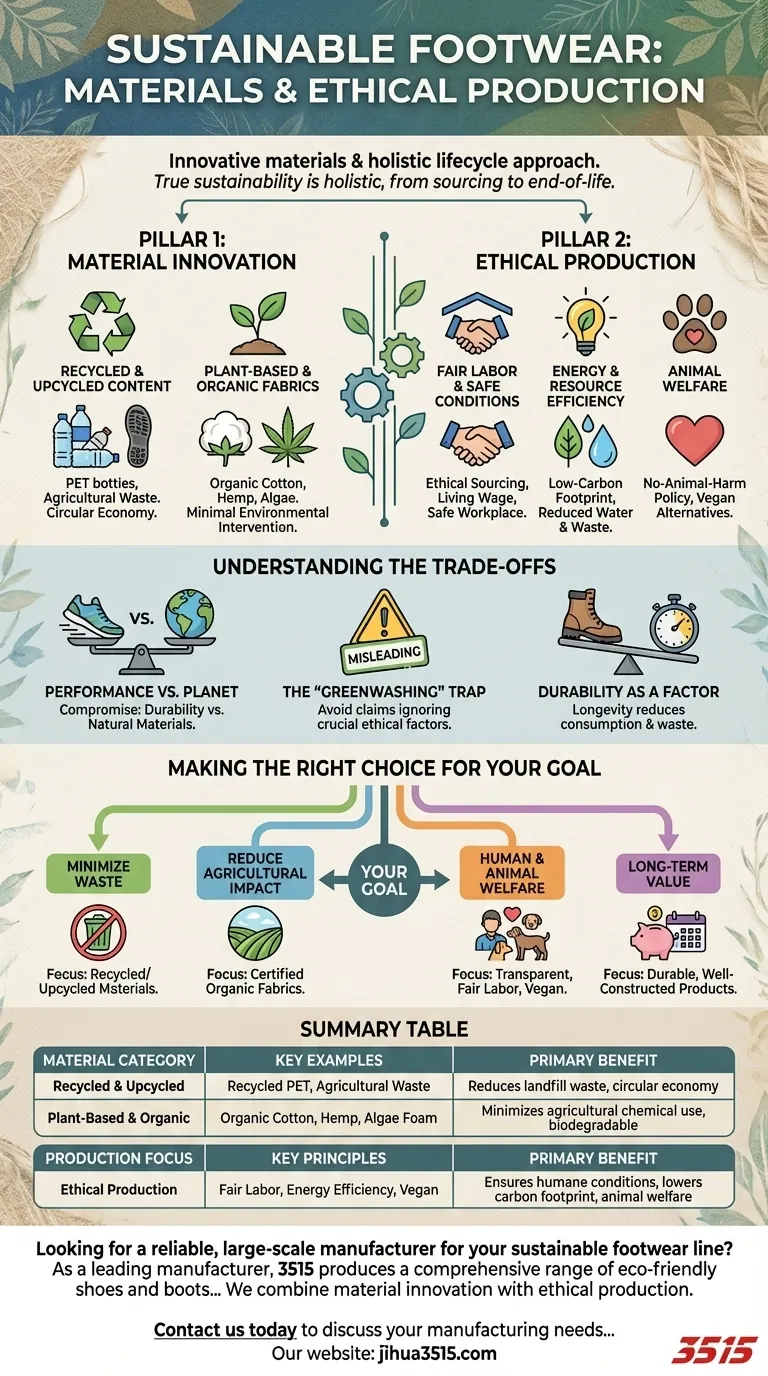
Related Products
- Durable Rubber-Soled Utility Shoes for Wholesale & Custom Brand Manufacturing
- Lightweight Breathable Training Shoes for Wholesale & Custom OEM Manufacturing
- Wholesale Breathable Training Shoes Custom Athletic Footwear Manufacturer
- Wholesale Durable & Breathable Training Shoes for Custom Brands
- Premium KPU Athletic Safety Shoes for Wholesale
People Also Ask
- What is vulcanized rubber and why is it used in products? The Key to Durable, Flexible Footwear
- What historical breakthrough in 1844 contributed to modern shoe sole manufacturing? The Vulcanization Revolution
- Which type of sole is better for premium sneakers and why? The Definitive Guide to Rubber Outsoles
- What are rubber soled shoes? The Ultimate Guide to Durable, All-Weather Footwear
- What makes rubber sole shoes an economical and practical choice? Unmatched Durability & All-Weather Value

